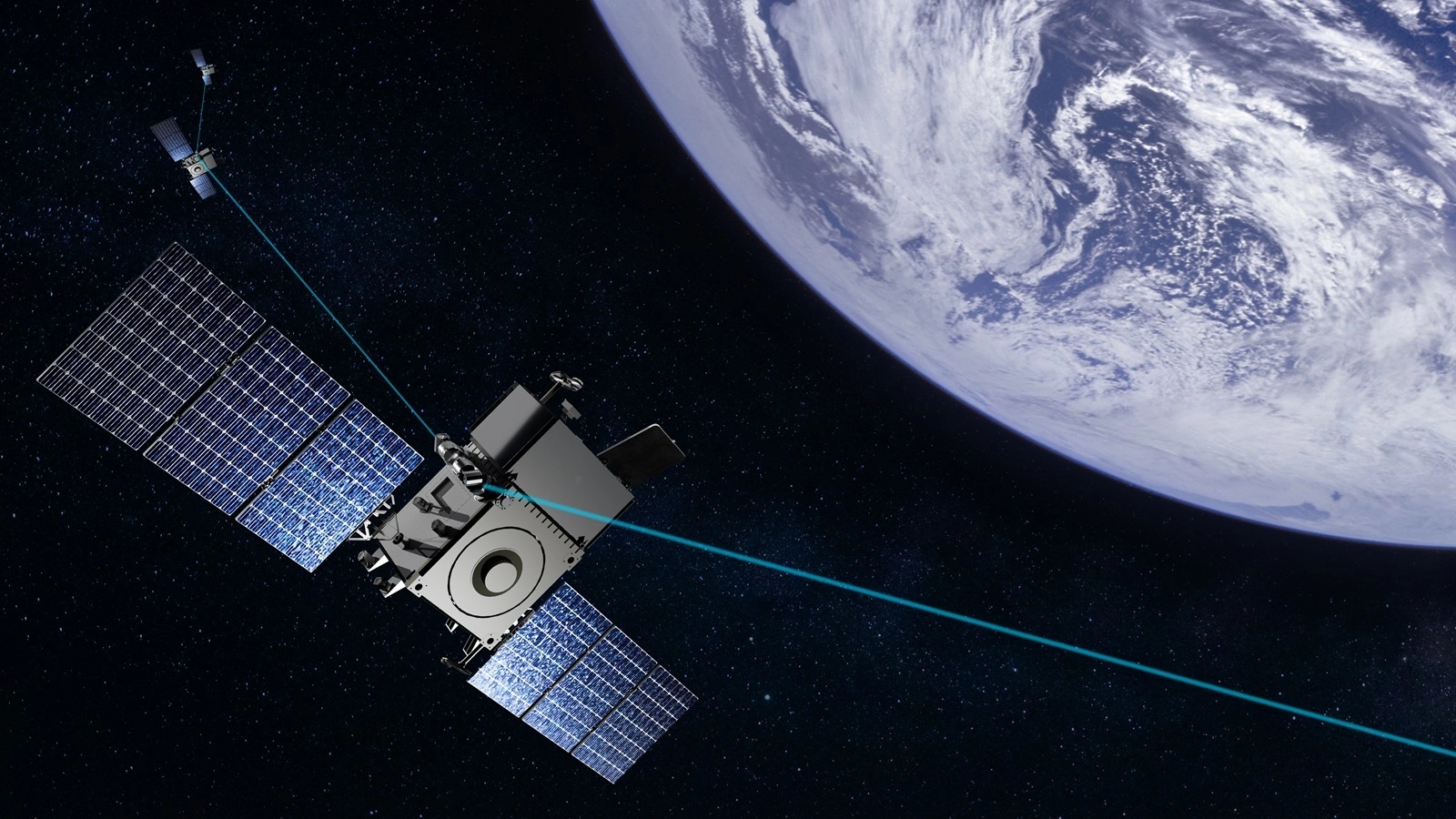SSTL delivers 22nd Galileo FOC payload

Above: The 22nd FOC payload to be delivered under Works Orders 1&2, with the SSTL team, before shipment to OHB in Bremen.
Galileo is Europe’s own Global Navigation Satellite System, providing real-time positioning, navigation and timing services with unrivalled accuracy.
As Payload Prime for Galileo FOC Works Order 1 & 2, SSTL is responsible for the development, assembly, integration and test of 22 navigation payloads. The first Galileo FOC payload was delivered to OHB in 2012, and since then payloads have continued to roll off the production line at SSTL, with a delivery schedule of approximately one every six weeks.
On 12 May, SSTL held an event to mark the occasion, and to celebrate the achievement with the contributors and supporters of the FOC payloads work.

Above: Lord David Willetts, Patrick Wood (SSTL's Managing Director), Katherine Courtney (Chief Executive of the UK Space Agency) at SSTL to celebrate the delivery of the 22nd Galileo FOC Payload, 12 May 2016.
Katherine Courtney, Chief Executive of the UK Space Agency attended the event and said: “Satellite navigation is an important part of the UK space industry success story and we are at the forefront of innovation in technology and services. Every FOC payload for the Galileo constellation - the beating heart of each satellite - has been built here in Guildford and the completion of this 22nd payload is a significant milestone which should be celebrated. We remain fully committed to the success of the Galileo programme, and look forward to the start of initial services later this year.”
SSTL’s state-of-the-art FOC payload comprises of different units that have been manufactured by a European supply chain and the modular design of the satellite enables SSTL to assemble the payload units onto three panels for delivery, fully tested, to OHB in Bremen.

Above: SSTL's Galileo FOC payload under production.
The last of the payloads in these two batches has now completed its journey through production and test at SSTL and has been delivered to Germany, where a team of SSTL engineers will assist OHB engineers with integration to the spacecraft platform.
Dr John Paffett, Director of Telecommunications and Navigation at SSTL, commented “The completion and delivery of the 22nd payload for FOC marks another milestone for SSTL, and I must pay tribute to the talented and dedicated FOC team here who have worked tirelessly to keep the production line rolling for the past four years. We are extremely proud of our contribution to Europe’s new navigation system, and we are all looking forward to the day that the new service comes on stream, and we can start using it in our daily lives.”
SSTL’s FOC payload is based on European sourced atomic clocks, navigation signal generators, high power travelling wave tube amplifiers and antennas, and it will provide Galileo’s navigation, positioning and timing services.
Paul Verhoef, Director of Galileo Programme and Navigation at the European Space Agency, said “SSTL has been a reliable partner of the Galileo venture since GIOVE-A. I wish to thank all SSTL staff for their extremely valuable contribution.”
The subcontractors for SSTL’s Galileo FOC navigation payload are Airbus Defence and Space, Finmeccanica, Spectratime, Kongsberg Norspace, Rymsa, TAS-I, Tesat, Ruag Mier, ComDev (Honeywell), and Siemens. Testing facilities were provided at Airbus Defence and Space and RAL Space.
The next launch of a pair of Galileo FOC spacecraft is due to take place on 24 May on board a Soyuz launcher from Kourou in French Guiana. Twelve Galileo satellites are already in orbit, and a second launch of 4 spacecraft is planned for later this year, bringing the total of 18 Galileo satellites in orbit by the end of this year.











